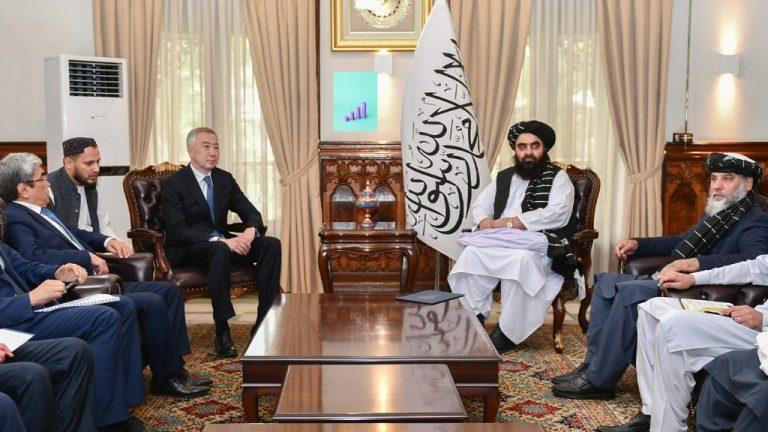Central Asian Engagement with Afghanistan stands at the forefront of regional diplomacy, with nations holding onto aspirations amidst the shifting sands of American involvement. The echoes of September’s C5+1 summit reverberate as Central Asian neighbors yearn for a deepened American role, envisioning increased humanitarian assistance, amplified trade networks, and fortified counterterrorism efforts.
Media conversations with officials hint at the potential for enhanced aid channels via Uzbekistan, signaling a pathway for tangible support to flow into Afghanistan. Additionally, whispers of heightened military assistance from Washington to Central Asian states underscore the quest for bolstered regional connectivity initiatives.
While formal diplomatic recognition of the Taliban government remains elusive, Central Asian nations pragmatically engage with the Afghan entity, driven by shared interests spanning security, trade, and water resource management. Uzbekistan’s advocacy against Afghanistan’s isolation resonates, urging the international community to maintain dialogue.
Three years post the American military withdrawal, U.S. officials maintain a semblance of commitment to Afghanistan, albeit amidst a recalibration of priorities towards global concerns like Russia’s conflict with Ukraine. David Sedney, a seasoned diplomat, reflects on the prolonged path to productive engagement, drawing parallels with historical conflicts.
Scott Worden, a voice on Afghanistan and Central Asia at the U.S. Institute of Peace, cautions against overestimating American leverage, amid a landscape teeming with multifaceted global challenges. Balancing acts between strategic imperatives and humanitarian concerns underscore the complexities of American involvement.
Despite hurdles, some Western nations, including the United States, navigate aid delivery through non-Taliban channels, safeguarding humanitarian assistance pathways to Afghan civilians. USAID‘s fiscal support underscores a commitment to alleviate suffering, emphasizing direct aid to vulnerable populations.
Frederick Starr, an advocate for closer regional ties, highlights Afghanistan’s critical role in fostering stability and integration—a commitment seemingly overshadowed by competing priorities. Observers caution against escalating tensions, particularly between the Taliban and Tajikistan, underscoring the delicate diplomatic tightrope.
Worden outlines key American interests, including counterterrorism, hostage negotiations, and humanitarian aid delivery, aligning with regional imperatives. A nuanced approach towards the Taliban underscores a quest for an inclusive endgame, amid diverging global and regional priorities.
As the geopolitical landscape evolves, Worden questions the sustainability of dualistic engagement strategies, predicting a gradual thaw in regional engagement with the Taliban. The trajectory of American attention towards Afghanistan remains contingent on geopolitical exigencies and domestic political dynamics.
Amidst calls for a policy review, Samy Mahdi, an Afghan journalist, underscores the need for transparency and communication, urging sustained dialogue amidst evolving challenges.
In the labyrinth of Central Asian engagement with Afghanistan, the hopes and challenges of American involvement intersect, shaping the region’s diplomatic landscape amidst a backdrop of uncertainty.


